#verena tarrant
Text
okay finished The Bostonians review below:
The Bostonians is a Henry James novel published in the 1880s, meant to take place in 1870s Boston. Basil Ransom, a charming but soulless Mississippi gentleman, heads north to make his fortune and calls on his distant cousin Olive Chancellor, a determined spinster and suffragette leader. Olive's assertive, blunt attitude, independent, wealthy lifestyle, and cold attitude towards Southern 'chivalry' and 'tradition' sets Ransom on edge, and the two quickly part ways.
Meanwhile, Olive meets the wide-eyed innocent Verena Tarrant, a naturally charismatic and precocious middle class girl whose parents are desperate to project her into life as a political celebrity of the suffragette cause. While she finds Verena's parents tasteless and obnoxious, Olive is quickly enchanted with Verena and decides to take her under her wing, hoping to make her a refined, poised voice of the feminist movement.
Ransom's attempts to reinvent himself as a successful businessman repeatedly fail; frustrated and bored with life in Boston, he is on the verge of giving up when he meets Verena as well. Stunned by her beauty and wit, he becomes determined to 'redeem' her from the corrupting influence of her fellow suffragettes.
While Verena is initially horrified by Ransom's blatant 'genteel' misogyny and archaic attitudes towards women and the lower classes, she is gradually won over by his persuasion and charm, as he assures her he has no intentions of changing her mind, but only wants her to understand his perspective.
The bulk of the novel is consumed by the struggle between Ransom and Olive over Verena's fate. Will she succumb to Ransom and become a submissive and demure wife and mother, or will she accompany Olive in her crusade? While James makes it clear how odious Ransom is, he also showcases Olive's flaws and controlling nature, as well as hints that her feelings towards Verena may also be romantic and possessive in their own right.
Ultimately, Verena is, depending on your perception, an indecisive and gullible young woman who falls for the devil on her shoulder, or more coldly calculating and cunning than she lets on. Do either Ransom or Olive truly know her, or are they merely projecting their ambitions and desires onto her as blank slate?
While the book meanders horrifically in the middle and has several unnecessary subplots (imo), it shines best when Ransom, Olive, and Verena are all jockeying for power and privilege in the same space. It offers a shockingly honest and insightful look at the reformer culture of the period, while also acknowledging the privilege and insulated bubble that women like Olive and Verena live in, and the fact that they only really desire liberty for women of their wealthy WASP demographic.
6 notes
·
View notes
Note
I agree that we should all be reading The Bostonians, although I want to defend the relevance of The Princess Casamassima a bit- I think (echoing Trilling although I can't remember if he puts it exactly this way in his essay) that much of the power of the book comes from the way that it's post-revolutionary, about the eventual realization on the part of sensitive people that if allowed to spread unchecked the fires of righteousness will also consume the little rooms and books that make life worth living, and ours too is a post-revolutionary moment. The Bostonians, though is by far the better book: there's something there that reminds me a bit of those late Melville stories (or parts of The Confidence Man) with their hidden meanings, a surface of (to dubiously transpose our own politics onto the 19th century) gleefully owning the libs and the left masking something so much deeper and more complex. I won't overstrain that comparison though- as I've said, James was the platonist to Melville's gnostic, and so for him this is the best of possible worlds, and there can be no submerged rage against Society and Nature, only a saddened shaking of the head about the tears on Verena Tarrant's cheeks or the gun that Hyacinth Robinson would've been better off using on the duke.
Yes, I was being superficial, just dividing them into class war or culture war novels—or indeed "owning the left" or "owning the libs" novels—but both are relevant. (And James, in the end, is no kind of leftist but is some kind of lib.) As you suggest, however, The Bostonians is much the more readable of the two.
1 note
·
View note
Photo

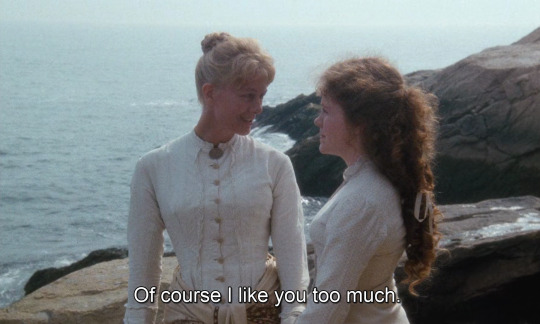

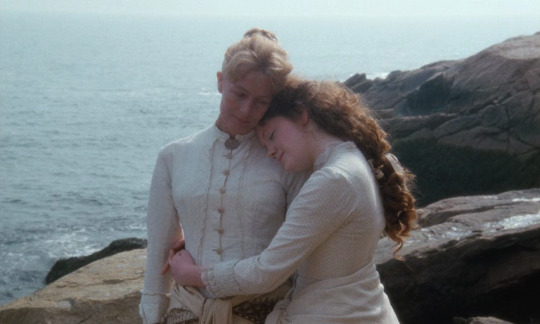
The Bostonians (James Ivory, 1984), based on the novel by Henry James.
#Vanessa Redgrave#Olive Chancellor#Madeleine Potter#Verena Tarrant#The Bostonians#Henry James#James Ivory
151 notes
·
View notes
Photo
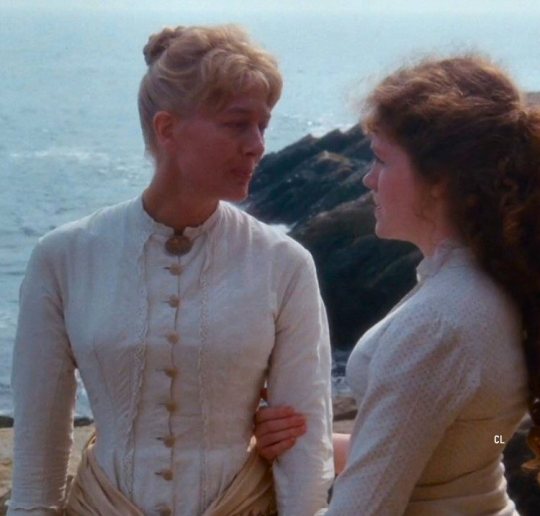

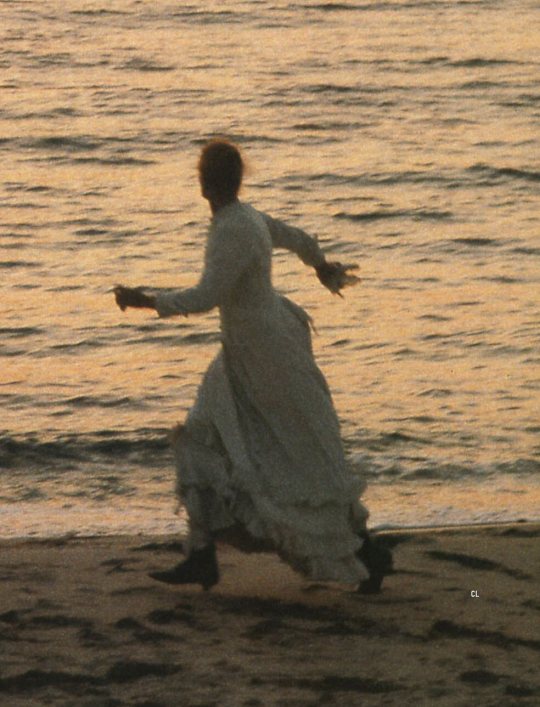

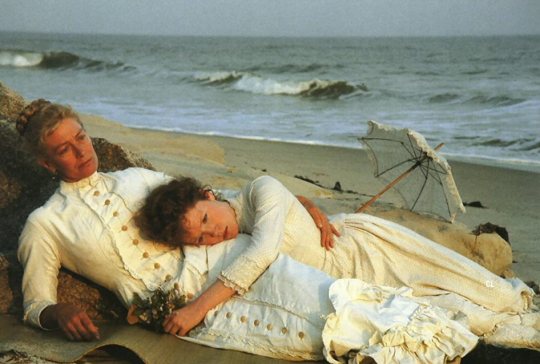
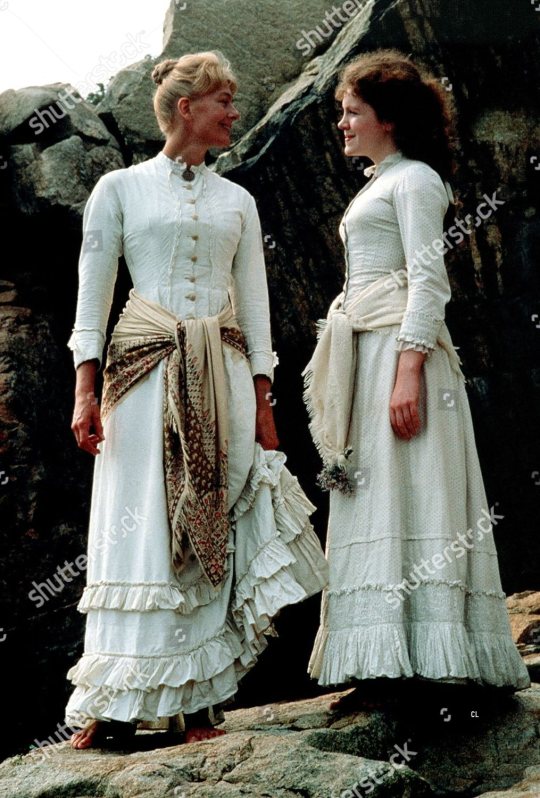

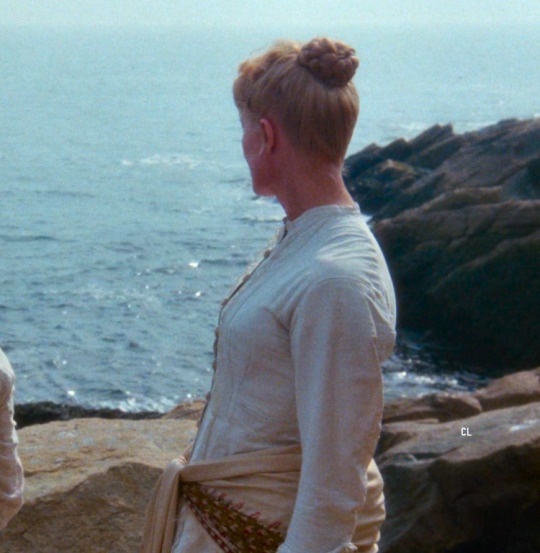
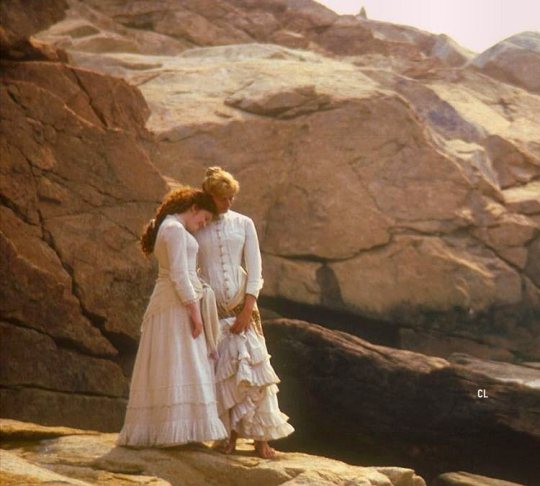
Olive Chancellor (Vanessa Redgrave) & Verena Tarrant (Madeleine Potter) White dresses.. The Bostonians (1984).. Costume by Jenny Beavan.
39 notes
·
View notes
Photo

Oh my god they were
Bostonians
#the bostonians#henry james#the bostonians 1984#perioddramaedit#femslash#olive chancellor#verena tarrant#vanessa redgrave#boston marriage#history#lgbtinlit#diversebookfanart
21 notes
·
View notes
Text
i wrote a little character study of olive chancellor (from henry james’ 1886 novel the bostonians) and if you want you can read it here!
#the bostonians#my writing#my fanfic#henry james#literature#books#olive chancellor#verena tarrant#queer literature#wlw#pastiche#ellis reads#dw im not expecting anyone to actually read this lmao#i was just procrastinating from writing an email 💕#but i quite liked it so i thought i’d post it#it’s only a thousand words
1 note
·
View note
Video
youtube
(via https://www.youtube.com/watch?v=SAAXUpZ3DsM)
This is a compilation video of my favorite scenes between Olive Chancellor and Verena Tarrant from the 1984 film "The Bostonians," based on the Henry James novel. Starring Vanessa Redgrave, Madeleine Potter, the women's suffrage movement, and that gay shit™. Do they end up together? No, but Olive gives a bomb ass speech at the end.
#the bostonians#vanessa redgrave#madeleine potter#olive chancellor#verena tarrant#henry james#old movies#criterion collection#merchant ivory#lesbian#bisexual#gay#victorian lesbians#victorian#suffragette#women's suffrage#feminism
12 notes
·
View notes
Text
“I diritti delle donne le premevano quanto il canale di Panama…”. Un romanzo da rileggere: “Le bostoniane” di Henry James
La bella Verena Tarrant, la femminista Olive Chancellor, il giovane e ambizioso avvocato Basil Ransom con velleità da scrittore. E poi ancora Boston, New York e il Mississippi. Le bostoniane di Henry James – pubblicato inizialmente nel 1885 sulla rivista americana The Century Magazine, e poi in volume nel 1886 da Macmillan and Co. di Londra – è un romanzo pieno di contraddizioni e con una profonda analisi psicologica dei personaggi. Ci addentriamo nei recessi più segreti delle menti dei protagonisti, li seguiamo nei ragionamenti, nelle valutazioni, nelle scelte. Il racconto e la scrittura sono ipnotici, ci trascinano per mano nell’intreccio e nei cambiamenti di umore e prospettiva continui dei protagonisti. Boston è una realtà fondamentale del romanzo. Cinica, materialista, bigotta, provinciale. Il denaro e il successo sono gli unici valori e aspirazioni dei suoi abitanti. New York invece è il centro della vita sociale e culturale e considera Boston in maniera snobistica perché di mentalità ristretta e asfittica, dove tutti si conoscono e sanno delle vite degli altri. Il successo personale e la notorietà sono gli unici metri di giudizio. E Verena è vittima di questo ambiente e della sua famiglia. Il padre, guaritore mesmerico e la madre vogliono infatti sfruttare il talento della figlia per le loro aspirazioni materialistiche e sociali. Un ambiente gretto e nello stesso tempo spietato. “La signorina Chancellor era un’amica desiderabilissima – sostiene infatti la signora Tarrant, madre di Verena – e le avrebbe aperto i migliori salotti di Boston”.
*
Ma non ci sono solo Boston e New York. Fa capolino tra le pagine anche il Mississippi, rappresentato nelle sue idee da Basil che lì è nato. Basil infatti porta avanti i principi – retrogradi e conservatori secondo Olive e Verena – del suo ambiente. Sono presenti all’interno del libro la lotta e i pregiudizi tra gli Stati del Nord e quelli del Sud degli Stati Uniti. La differente concezione della donna, le battaglie per i diritti civili, l’emancipazione dei neri. Verona e Olive invece sono le beniamine delle idee più avanzate in materia di diritti delle donne. Donano la loro esistenza a questa causa. “Nulla le preme se non l’innalzamento del nostro sesso… dice che posseggo il dono di esprimermi… Dice ch’è un gran vantaggio, per un movimento, impersonarsi in una figura giovane e brillante”, racconta Verena che per le sue notevoli doti oratorie viene infatti cooptata da Olive nella sua battaglia e imbrigliata in un rapporto ambiguo e drammatico nello stesso tempo. “Volete esser mia amica, la mia amica unica e sola, al di là di tutto e tutti, ora e sempre?”, chiede Olive a Verena. E più avanti nel romanzo crescerà l’intensità del suo sentimento. “…non abbandonarmi…non abbandonarmi o morrò!”.
*
I tre protagonisti, Verena, Olive e Basil sono come i personaggi di una pièce teatrale. Gli ambienti nel racconto sono pochi. L’intreccio psicologico che non è privo di colpi di scena e non esente da una trama avvincente, è arricchito dall’ambiguità dei caratteri divisi tra innocenza e interesse, calcolo e idealismo. Tutti i personaggi sono complessi, multipli, sfaccettati. Come d’altronde è lo spirito più autentico degli Stati Uniti. Una grande potenza composta da tante pieghe spesso contraddittorie tra loro ma che si tengono incredibilmente insieme. La realtà infatti è sempre più sfuggente di come si pensa. E la vita travolge tutto, spezza gli argini, deborda, spariglia le carte, rimette tutto in discussione. Anche se il suo prorompere è amaro e porta con sé dolore, ferite, sconfitte.
*
Con questo romanzo James si era prefisso di realizzare il “Grande Romanzo Americano”. È riuscito nel suo intento? Sicuramente questa è un’opera ambiziosa, ricca di spunti, una pietra del realismo psicologico. Ma anche una fotografia degli aspetti più brutali dell’America di fine ’800, attraverso i ritratti di personaggi indimenticabili. Olive eroina tragica e passionale, combattuta nell’ambiguità del suo sentimento e Verena giovane idealista vittima dei valori materialisti della società ma non priva anche di un aspetto calcolatore. “Era una furbacchiona spudorata, e i diritti delle donne le premevano quanto il canale di Panama – racconta Adeline, sorella di Olive su Verena –: l’unico diritto d’una donna a cui ambiva era quello di arrampicarsi su qualche cima, in modo da farsi guardare dagli uomini”. Olive vuole convincere la sua amica a rinunciare a tutto, anche al matrimonio e all’amore per la loro missione e vocazione. Verena sembra convinta, fin quando l’imprevedibilità della vita le travolge.
Chiara Clausi
*In copertina: John Singer Sargent, “Essie, Ruby and Ferdinand, Children of Asher Wertheimer”, 1902
L'articolo “I diritti delle donne le premevano quanto il canale di Panama…”. Un romanzo da rileggere: “Le bostoniane” di Henry James proviene da Pangea.
from pangea.news https://ift.tt/3eaqTMS
0 notes
Photo
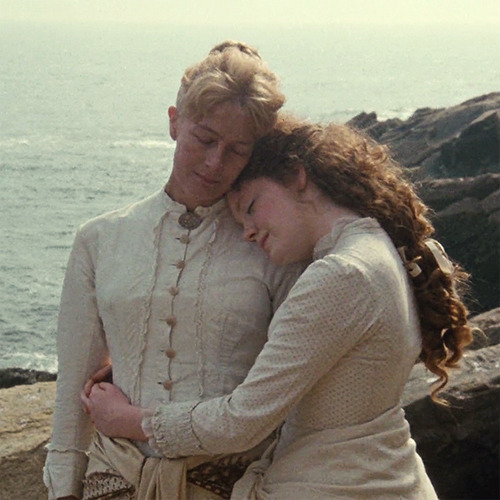
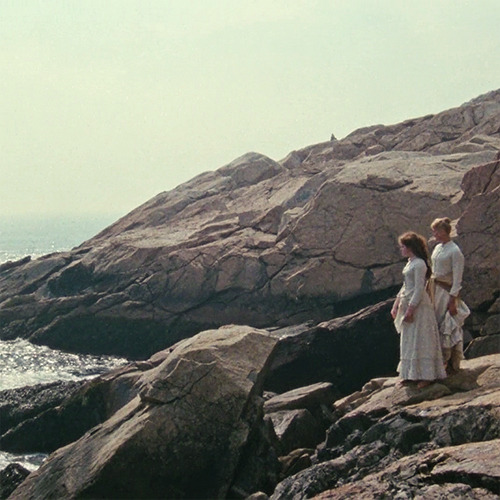
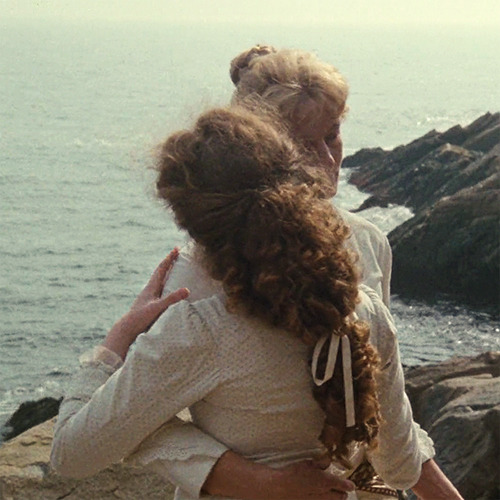
When I was a child,
and you were a child
in our kingdom by the sea.
We loved with a love
that was more than love,
I and my Annabel Lee.
Annabel Lee (1849) by Edgar Allan Poe
#mentally i'm here#the lyrics in the film are slightly changed from the original poem#interesting choice if you ask me#Vanessa Redgrave#Olive Chancellor#Madeleine Potter#Verena Tarrant#Henry James#James Ivory#The Bostonians#Edgar Allan Poe#Annabel Lee#thebostoniansedit#the bostonians edit
47 notes
·
View notes
Photo
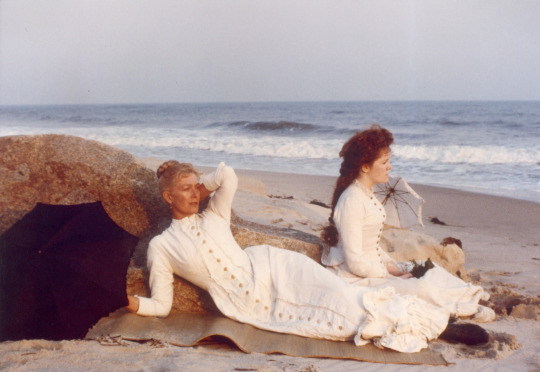

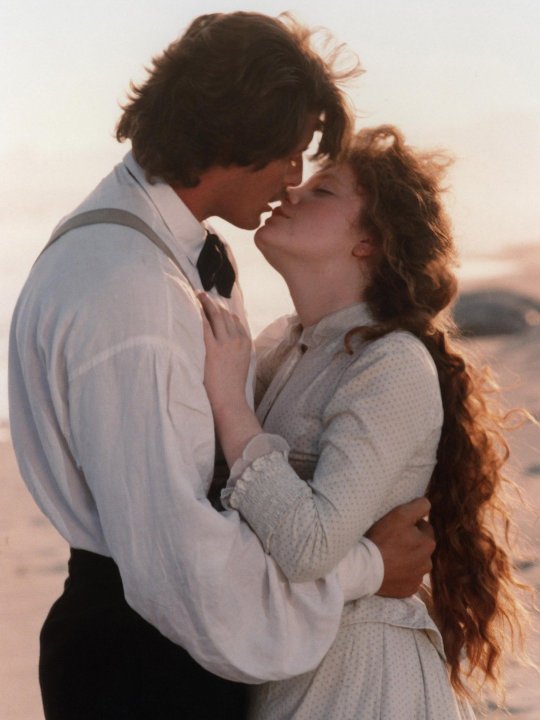
A bored lawyer and a suffragette vie for the attention of a faith healer’s charismatic daughter.
I don’t know what I need to do for you all to watch The Bostonians (James Ivory, 1984) but please do yourself a favor and watch it. It’s too terrible when certain films are forgotten, and left to obscurity.
I feel the anguish and despair portrayed brilliantly by Vanessa Redgrave in Olive Chancellor’s character is enough a reason to watch the film but there’s other things to like too.
For one, the drama, is so compelling like. Henry James is a special one, it’s based on his novel (which at some point i’d need to get myself a copy of). Characterization and conflict go hand in hand and in here it’s done in the most polished way ever, couldn’t be any better. The performances by Christopher Reeve and Madeleine Potter are on point, supported by Jessica Tandy and Linda Hunt.
Cinematography by Walter Lassally. Some of the shots in this film are exquisite, and I don’t mean just the color, or depth of field, you feel the intimate atmosphere throughout, the performances part of it too, of course.
Script written by Ruth Prawer Jhabvala, out of the Henry James novels she adapted I’d say this one is the best one. The changes made from the novel make sense and enhance even more the conflict.
In my head it reminds me of Thomas Hardy’s Wessex although it is not as tragic as his novels.
It’s a great film, made for debate. Been reading lots of academic articles finding new insight on it and it just blows my mind, everytime. I cannot not share it you know. If anyone needs a link, i’ll be happy to provide one.
#Vanessa Redgrave#Olive Chancellor#Madeleine Potter#Verena Tarrant#Christopher Reeve#Basil Ransom#Henry James#The Bostonians#James Ivory#Ismail Merchant#Ruth Prawer Jhabvala#Walter Lassally#film
9 notes
·
View notes
Text
*deep breath* Verena Tarrant was a huge BISEXUAL
2 notes
·
View notes